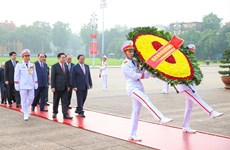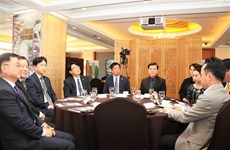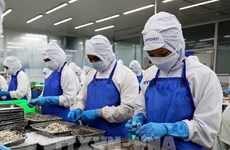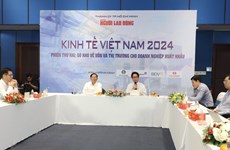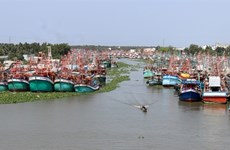Information access critical in int'l integration: official
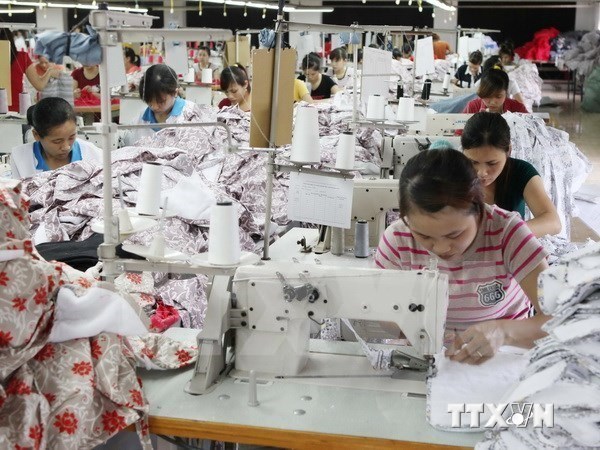 Illustrative image (Source: VNA)
Illustrative image (Source: VNA)Dau Anh Tuan, Head of the Legal Department of the Vietnam Chamber of Commerce and Industry, spoke to the newspaper Hai Quan (Customs) about challenges facing businesses as they turn to the outside world.
* How do you evaluate Vietnamese enterprises' knowledge about international integration?
By late 2014, Vietnam has signed nine Free Trade Agreements, of which six are between ASEAN-China; ASEAN – the Republic of Korea; ASEAN – Japan; ASEAN – India; ASEAN-Australia-New Zealand and ASEAN Economy Community and the remaining three are bilateral agreements between Vietnam with Japan, Chile and Laos.
In the first nine months of 2015, Vietnam completed its negotiation and signed the Free Trade Agreement (FTA) with the Asia – Europe Economic Alliance and the Vietnam – Republic of Korea Free Trade Area.
At present, the country is in the final process of negotiating for the Trans-Pacific Partnership Agreement (TPP) and the Vietnam – EU Free Trade Area.
The signing of these two agreements is expected to have a great impact on Vietnam's economy in general and enterprises in particular.
Throughout the process of deep international integration, many workshops and conferences have been organised to inform the general public and companies, including about what has been going on during negotiations for these trade agreements. In the meantime, many sets of documents have been printed and distributed to the enterprises to help them understand what benefits they will enjoy.
However, in reality many enterprises have not really understood what they should do during the integration process. In my opinion, the weakest point for the enterprises is that they don't have the skill to look for information they need. Furthermore, their poor foreign language skills have become a big barrier to many enterprises. For example, a Vietnamese leading corporation in computer hardware distribution told us that they were confident in their future market expansion without knowing that under the FTAs, they have to compete, on a level playing field, with their peer foreign corporations. We, at the VCCI and many government agencies are worried about the problem and promise to do our best to help Vietnamese enterprises to overcome their challenges.
* In addition to the enterprise's poor knowledge, in your opinion, what are other causes hindering the enterprises from accessing information about international integration?
More recently, government agencies have done their best to spread out information on the country's efforts to deeply integrate internationally. However, results have been limited.
In my opinion, the main hindrance to the poor information access is that most of our enterprises are small and medium size and their concept about the market economy is still limited. It is almost impossible to ask each enterprise to create its own unit specialising in international integration.
As we all know, the language written in the FTAs or TPP is very academic and not easy for laymen to understand. So I suggest that the VCCI and government agencies should co-organise workshops or conferences to help the enterprises understand what they have to do to get benefits from these agreements.
* Will you please further specify measures to help enterprises to better access to information on international integration?
The first thing the enterprise should do is to arrange their own resources to look for information which is suitable to their own condition. In the meantime, government agencies should send experts to enterprises to guide them how to look for information suitable to their own circumstances and capacity during international integration.
In addition, enterprises producing the same products should create an information focal point unit and that unit will have the duty to help its members understand what they have to do if they want to export their products abroad.-VNA






